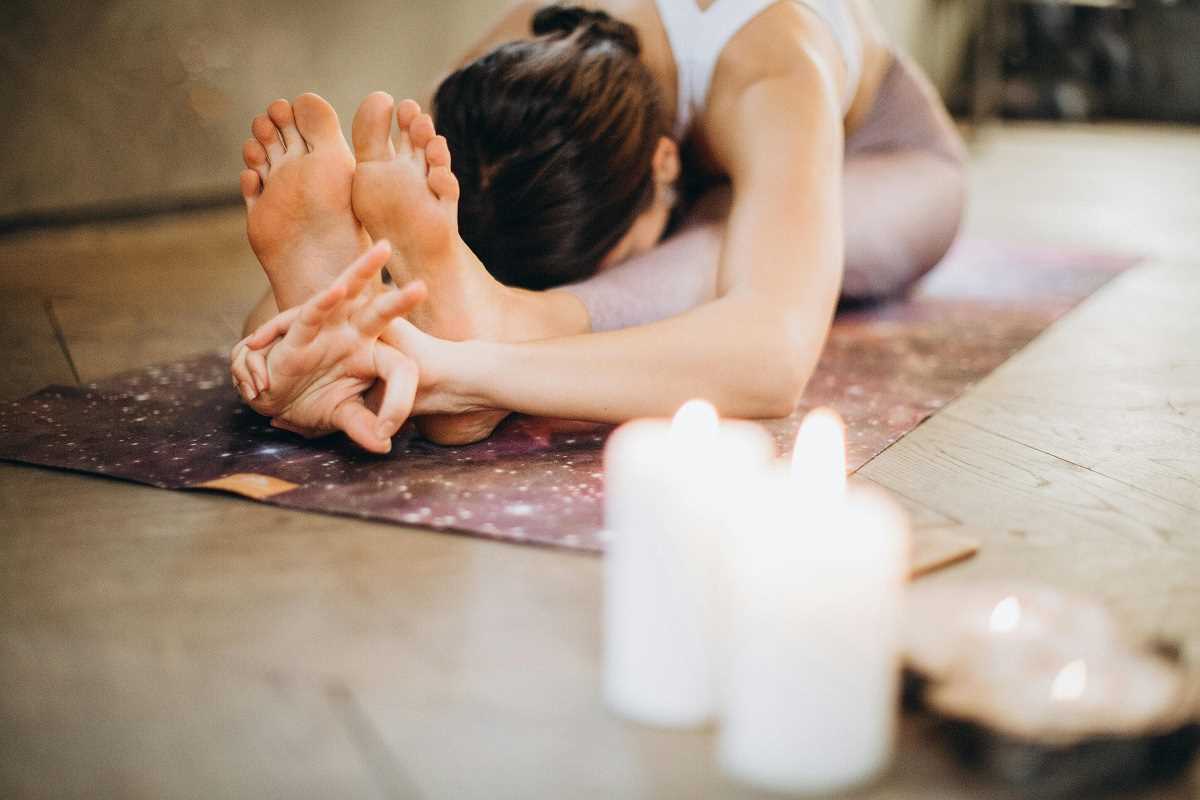Long-term relationships thrive when both partners feel grounded, supported, and seen. But juggling office deadlines, household chores, and the occasional life crisis often chips away at those dynamics. If you’ve felt stretched thin or emotionally distant, you might wonder what could help you show up better for your partner.
Here’s an idea you may not have considered—yoga.
Yoga isn't just about flexibility or impressive poses at the gym. It sharpens mental clarity, cultivates emotional balance, and reduces stress. These benefits directly influence how you interact with your spouse, making you more patient, present, and connected. Yoga doesn’t fix relationships on its own, but practicing it can help nurture the qualities that strengthen them.
1. Yoga Reduces Stress and Its Domino Effect on Relationships
Stress makes a comfortable relationship feel tense. When you carry work frustrations or unpaid bills in your mind, they often spill over into interactions with your spouse. That rushed comment, lack of attention, or unintentional silence? Stress likely played its part.
Yoga tackles stress at its root. Moving through a set of poses, focusing on your breath, or flowing into stretches signals your nervous system to switch from “fight or flight” mode to a state of calm. Almost instantly, feelings of panic or irritation lose their grip.
When stress takes a back seat, conflicts at home start to feel less loaded. That means fewer passive-aggressive remarks or outbursts stemming from unrelated issues. By practicing yoga regularly, you approach conversations with clarity and patience, rather than frustration. It doesn’t just make life feel lighter—it makes marriage feel more balanced.
2. Yoga Sharpens Emotional Regulation
Relationships test emotional balance, especially during disagreements. Imagine this: a casual discussion escalates with a sharp tone, the argument spirals, and neither side feels heard. Emotional outbursts, while natural, often leave both people drained and disconnected.
Yoga is a powerful tool for emotional regulation. During yoga sessions, you tune into your breath and engage with the present moment, no matter how uncomfortable the stretch or pose might feel. Over time, this practice strengthens your ability to pause, reflect, and regain composure under pressure.
When arguments arise, you start noticing your reactions instead of running with them. You might catch yourself before snapping, breathe through irritation, and choose words more deliberately. By modeling calmness during these tense moments, you also encourage the same from your partner, creating a more productive space for communication.
3. Yoga Enhances Communication by Building Self-Awareness
Great communication stems from clear self-understanding. How can you articulate your needs and feelings if you’re overwhelmed or disconnected from yourself?
Yoga builds the self-awareness that bridges this gap.
Every time you flow through poses, you track how your body feels and how your mind reacts.
- Am I holding tension in my shoulders?
- Am I rushing through this stretch?
These questions help you understand your physical and emotional tendencies. Off the mat, this tuned-in mindset helps you process your emotions before they spill out in frustration.
After a hectic day at work, yoga might help you identify, "I feel overstimulated and need 20 minutes to decompress before dinner."
A small realization like this can prevent an unnecessary argument about why you’re “quiet” or “distant.” Clear self-awareness helps you express your needs more confidently and listen to your partner with less distraction. That openness strengthens emotional intimacy in subtle but lasting ways.
4. Yoga Encourages Empathy and Connection
Empathy keeps relationships deeply connected. It’s about recognizing your partner’s experience, even when it doesn’t align with your own. Yoga’s emphasis on mindfulness and compassion naturally nourishes this skill.
Many yoga practices encourage holding space for gratitude and kindness, not just toward yourself but toward others. Over time, this builds a mental habit of seeing others with more compassion and curiosity. Arguments become less about being “right” and more about understanding where your partner comes from.
Imagine your spouse venting about their stressful day, and instead of countering with your own frustrations, you ask, What do you need from me right now? That small shift—a focus on giving rather than reacting—can defuse tension and strengthen trust. The empathy yoga cultivates bleeds into these everyday moments, softening your approach and deepening your connection with your spouse.
5. Physical Benefits Add an Unexpected Boost
Yoga doesn’t just reshape mental patterns; it also energizes your physical body. When you practice yoga, you start noticing improvements in sleep, flexibility, and stamina. These shifts, while small, can enhance how you spend time with your partner.
Think about the last time you felt physically drained.
- Did you cut a date night short?
- Skip out on a walk?
- Say no to helping with a chore?
Practicing yoga strengthens your energy reserves, so you can bring more enthusiasm to shared activities and responsibilities.
Even something as simple as better posture plays a role in how you show up for your partner. When your back doesn’t ache or your shoulders don’t slump after a day at the desk, you’re more likely to engage fully—whether that means cooking dinner together, dancing in the living room, or staying up for a heartfelt conversation.
6. Couples Yoga Strengthens Nonverbal Bonding
Practicing yoga with your spouse creates its own layer of connection. Couples yoga challenges you to support one another physically while creating moments of synchronized rhythm and nonverbal communication. Laughing over a wobbly pose or holding a stretch together feels playful, yet intimate.
Even if yoga together isn't your thing, the principles and energy you cultivate solo still ripple into your partnership. A thoughtful solo practice, done with the intention to grow emotionally, often translates to deeper appreciation and patience in your relationship.
7. Self-Care Improves Your Capacity to Give
Yoga holds space for the relationship you have with yourself. Making time to nurture this relationship revitalizes how you engage with others. A spouse who feels balanced, cared for, and rejuvenated often brings the same energy into their marriage.
Instead of carrying tension and exhaustion into marital dynamics, you’ll likely discover renewed bandwidth for thoughtfulness and care. You might feel the difference in small gestures–lingering hugs, intentional compliments, or an ability to listen longer without mentally retreating. Yoga reminds you that tending to your physical and emotional wellness isn’t selfish; it’s how you sustain the energy to love actively and intentionally.
Can yoga transform you into a better spouse? Maybe not overnight, but it certainly sets the foundation for more centered, compassionate, and present interactions!
.jpg) (Image via
(Image via





